'I always worry that I’ll relapse' - exploring addiction
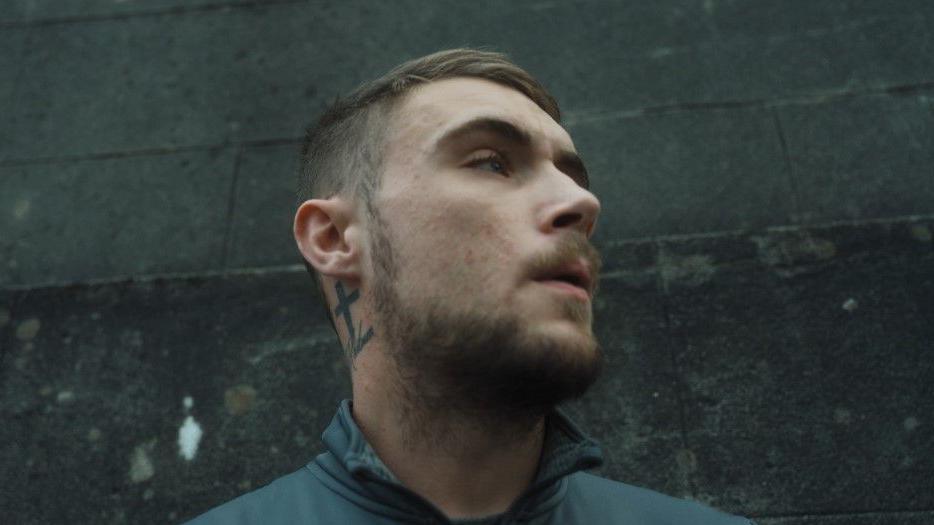
At its worst, Pete's cocaine habit could cost him hundreds of pounds in a single night
- Published
“It was hell on earth, I didn’t expect him to live this long. I always expected us to get a knock on the door and say he was found dead somewhere.”
For the past decade, Pat, like many other families, has been dealing with the fallout from his son’s drug addiction.
For the past six months, I have been exploring Northern Ireland’s drug culture, following those who are addicted and their families.
As services across Northern Ireland are struggling to keep up with demand, many people like Pat’s son, Pete, 23, often battle an addiction on their own.
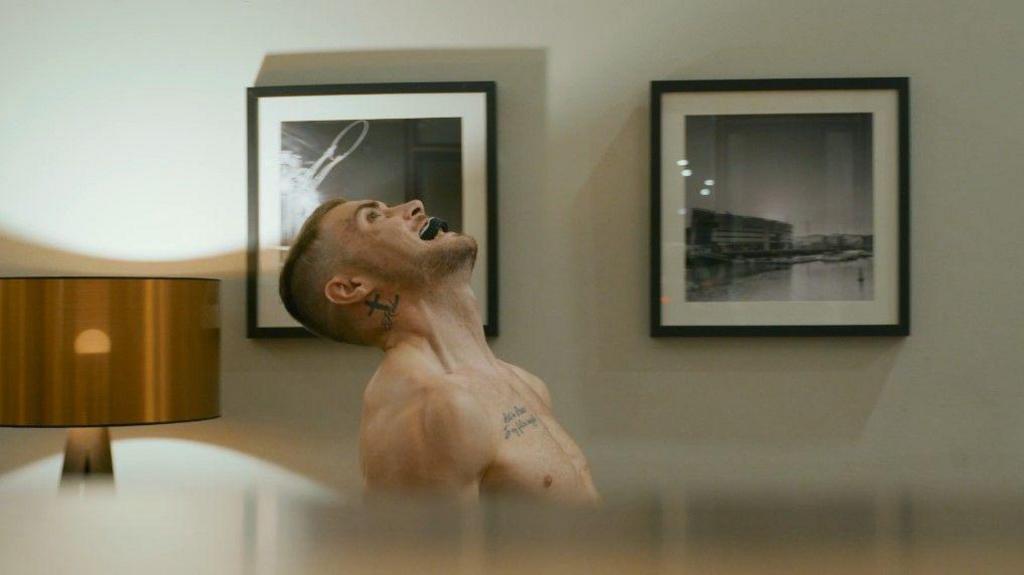
Pete describes boxing as being a "lifeline"
'They take the whole family'
Pete’s successful amateur boxing career is often halted by his cocaine habit.
At its worst, he could spend hundreds of pounds on the substance in a single night.
He has tried numerous times to try and break his destructive relationship with drugs.
When I meet him, he has stayed away from cocaine for two weeks and says he is determined to keep it that way.
“I will always have that thought in the back of my head, that worry that I’m going to relapse,” Pete tells a new two-part BBC series.
Boxing has been the lifeline for him, and the recent relapses with drugs have coincided with times when he can’t train.
“It’s a lot deeper than just training and boxing. It’s a pride thing, an ego thing. I just hope that nothing happens to me that means I’m not able to train,” he says.
He lives with his sister in County Down.
Pete’s mother left a year ago because of his drug use and the subsequent impact his behaviour was having on the family home.
“Drugs just don’t take the person they’ve got, they take the whole family,” says Pete’s mother.
Pete’s 18-year-old sister says her brother is her "best friend" but lives in constant fear of his relapses.
“There was a time where we thought: 'That’s it'. It’s calm now. But we’re worried that he’s going to go straight back to it - and I think part of him is. And that’s what we don’t want because it’s awful living like that,” she says.
Pete says "all of his friends" have struggled with drug use.
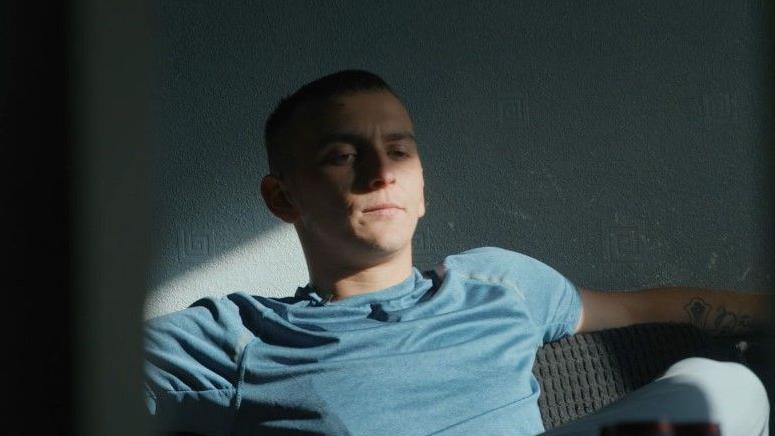
Caolan moved to London to try and beat his addiction
Two miles down the road, his good friend Caolan, has just returned home after leaving Ballynahinch and getting clean.
Since his teens, his cocaine use had taken over his life, and he left the town, moving to London to try to beat it.
“Whenever we started taking coke - we were staying up all night throughout the week. That stuff takes over you,” he says.
Caolan, 23, who works in construction, is fighting to stay off drugs, in a town that he says is awash with it.
“You go down there - and everyone is on it. It’s mayhem,” he says. “I want to get out of this small town because of this exact problem.”
'It's jail, dead or a future'
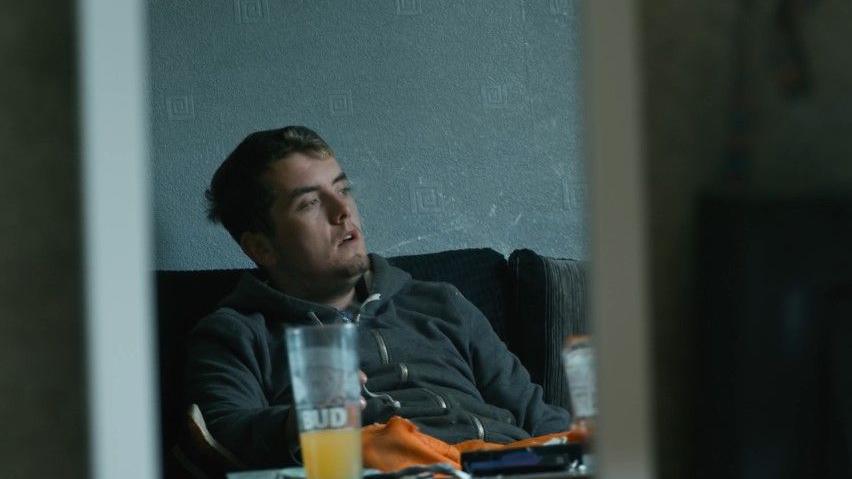
Sam says he has "dropped" all hobbies and interests due to his reliance on cocaine
Caolan's best mate, Sam, who works as a contractor, is in the grip of addiction.
“It’s always there. I used to play football, I used to have interests, hobbies, now it’s go to work, drink, take coke, repeat.
"Even looking back, it’s like the amount of things that you dropped to pick up that one thing,” says Sam.
Looking to the future, Sam is hopeful that he can beat his current reliance on cocaine.
“People say there’s [sic] two results, there’s three. It’s jail, dead or a future. I hope for the third but the first two are a lot more likely if I keep carrying on.”
Caolan, Sam and Pete are all friends, who know all too well the dangers of heavy drug use, each has lost close friends or family to drug overdoses.
Sam says: “There’s probably 10 people who have died of drug related death within probably 500 metres of my home.”
Friends Caolan, Sam and Pete rely on each other for support, as Sam says, “there’s times where there is no one else to ring, and you ring their number and everything’s all right an hour later".
With today’s click and collect culture of drugs, addiction is a daily battle and it's the support from friends and family that give many hope of a future.
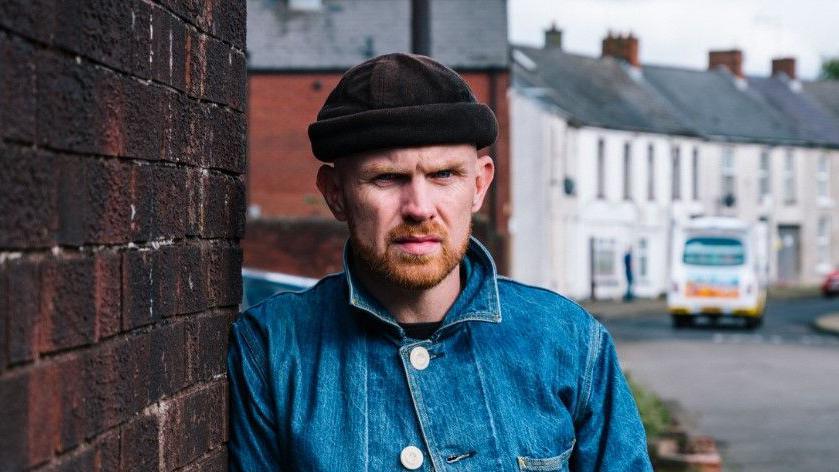
Rory Carson's series takes an unflinching look at the hidden world of drugs in Northern Ireland
If you are impacted by any of the issues in this article details of help and support are available on the BBC Action Line.